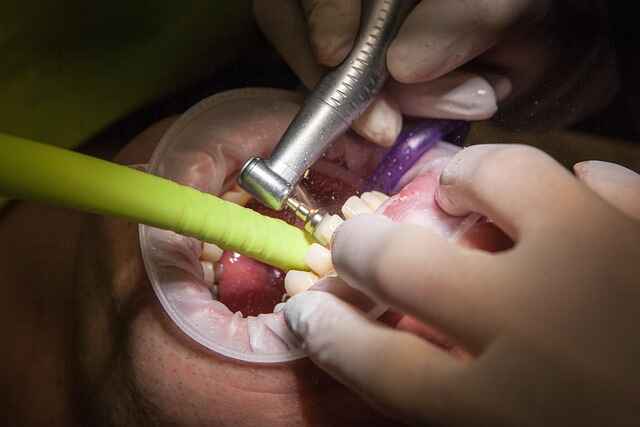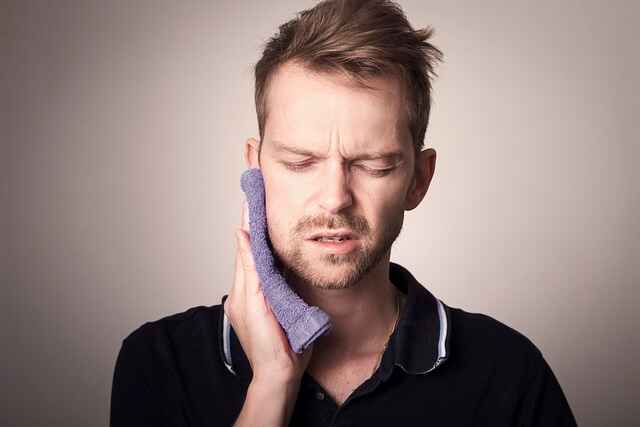What is Bruxism?
Bruxism is a sleeping condition where you grind, grind, or clench your teeth. If you have bruxism, you may unconsciously grind your teeth when you are awake called awake bruxism, or grind or grind your teeth while you sleep or sleep bruxism. It is considered a sleep-related movement disorder. People who clench or grind their teeth during sleep are more likely to have other sleep disorders such as snoring and pauses in breathing or apnea.
Mild bruxism may not require treatment. However, in some people, it can be so frequent and severe that it can lead to jaw disorders, headaches, damaged teeth, and other problems.
Because you can have sleep bruxism and not be aware of it until complications develop, it is important to know the signs and symptoms of this and seek dental care regularly. (Source)
Also Read: Effective Home Remedies For Knee Joint Pain
Symptoms:
Signs and symptoms of this may include:
- Grinding or clenching of teeth that may be loud enough to wake your sleeping partner
- Teeth that are flattened, broken, chipped or loose
- Worn tooth enamel, revealing the deeper layers of your tooth
- Increased tooth pain or sensitivity
- Tired or tight jaw muscles or a locked jaw that won’t open or close completely
- Pain or soreness in the jaw, neck, or face
- Sleep disturbance
See your dentist or doctor if you have any of the above symptoms or have other concerns about your teeth or jaw.

Causes:
It may be caused by a combination of physical, psychological, and genetic factors. This include:
- Bruxism while awake can be caused by emotions such as anxiety, stress, anger, frustration, or tension. It may even be a coping strategy or habit during deep concentration.
- Sleep bruxism can be a sleep-related chewing activity associated with arousal during sleep.
Risk factors:
These factors increase your risk of bruxism:
- Stress: Increased anxiety or stress can lead to teeth grinding. So are anger and frustration.
- Age: Bruxism is common in young children, but usually resolves in adulthood.
- Personality type: Having a personality type that is aggressive, competitive, or hyperactive can increase the risk of bruxism.
- Medicines and other substances. Bruxism can be an uncommon side effect of some psychiatric medications, such as antidepressants.
- Smoking tobacco, drinking caffeinated beverages or alcohol, or using recreational drugs can increase the risk of bruxism.
Facts:
- Sleep bruxism usually runs in families. If you have bruxism, other members of your family may also have or have a history of bruxism.
- Bruxism may be associated with certain mental and medical disorders, such as Parkinson’s disease, dementia, gastroesophageal reflux disorder (GERD), epilepsy, night terrors, sleep-related disorders such as sleep apnea, and attention-deficit/hyperactivity disorder (ADHD).
- Complications in severe situations can include damage to teeth, dentures, crowns or jaws, tension headaches, severe pain in the face or jaw, and disorders that occur in the temporomandibular joints located just in front of ears, which may sound like a clicking sound when opening the mouth.
Treatment:
In many cases, treatment is not necessary. Many children grow out of bruxism without treatment, and many adults do not grind or clench their teeth enough to require therapy. However, if the problem is severe, options include certain dental approaches, therapies, and medications to prevent further damage to the teeth and relieve jaw pain or discomfort. Talk to your dentist or doctor to find out which option might be best for you.
- Dental approaches: If you or your child has bruxism, your doctor can suggest ways to maintain or improve your teeth. Although these methods can prevent or repair wear on your teeth, they may not stop bruxism:
- Splints and mouth guards: These are designed to keep the teeth apart to prevent damage from clenching and grinding.
- Teeth correction: In severe cases where tooth wear has led to sensitivity or an inability to chew properly, the dentist may need to reshape the chewing surfaces of your teeth or use crowns to repair the damage.
2. Coping with stress or anxiety:
If you grind your teeth because of stress, you may be able to prevent the problem by learning strategies that promote relaxation, such as meditation. If bruxism is related to anxiety, advice from a licensed therapist or counselor can help.
3. Behavior change:
Once you know you have bruxism, you may be able to change your behavior by practicing proper mouth and jaw position. Ask your dentist to show you the best position for your mouth and jaw.
4. Medicines:
In general, medications are not very effective for treating bruxism, and more research is needed to determine their effectiveness. Examples of medications that may be used for this include:
- In some cases, your doctor may recommend taking a muscle relaxant before bed for a short period of time.
- Injections of Botox, a form of botulinum toxin, can help some people with severe bruxism that doesn’t respond to other treatments.
- The doctor may recommend short-term use of antidepressants or anti-anxiety medications to help deal with stress or other emotional issues that may be causing your bruxism.
Home remedies:
- Reducing stress by listening to music, taking a warm bath, or exercising can help you relax and may reduce your risk of developing bruxism.
- Avoid stimulants in the evening. Don’t drink caffeinated coffee or caffeinated tea after dinner and avoid alcohol during the evening as it can worsen bruxism.
- Practice good sleep habits. A good night’s sleep, which may include treating sleep problems, can help reduce bruxism.
Prevention:
- Keep a record of all your medications, including over-the-counter medications, vitamins, herbs, or other supplements you take, and the dosage. Avoid using any OTC without a doctor’s advice and visit.
- Talk to your sleep partner. If you have a sleeping partner, ask them to be aware of any grinding or clicking noises you might make while sleeping so you can report it to your dentist or doctor.
- Practice yoga or gymming or any other physical activity to keep your daily stress in balance. Try journaling your day to see what patterns and events stress you out.
Also Read: All about the Dash Diet: A Detailed Guide on Dash Diet for Beginners!





